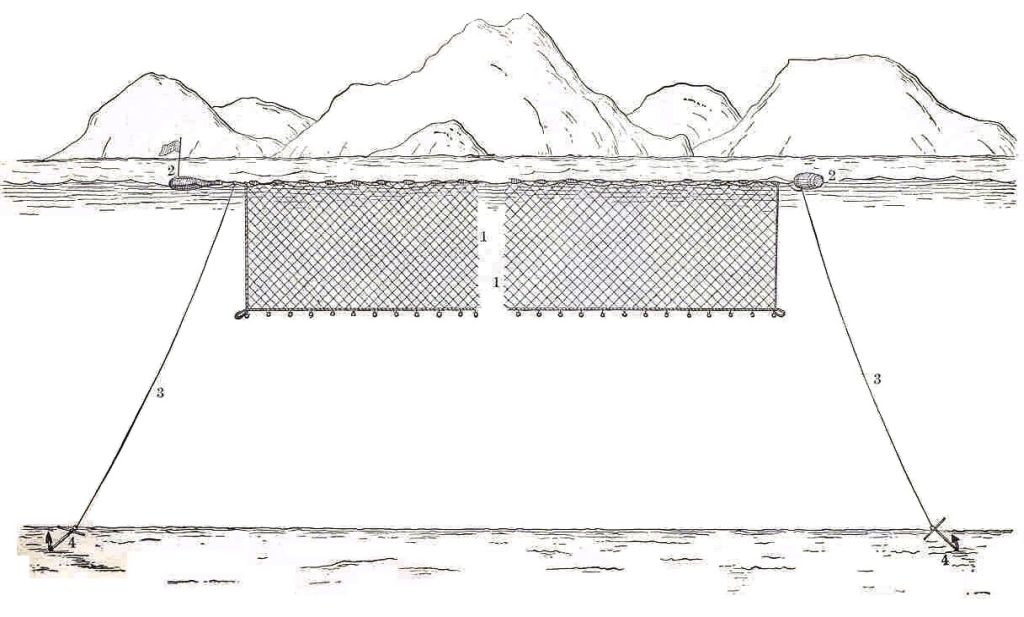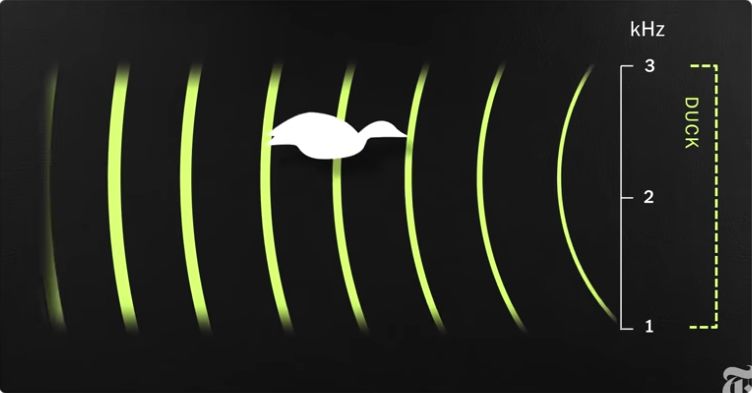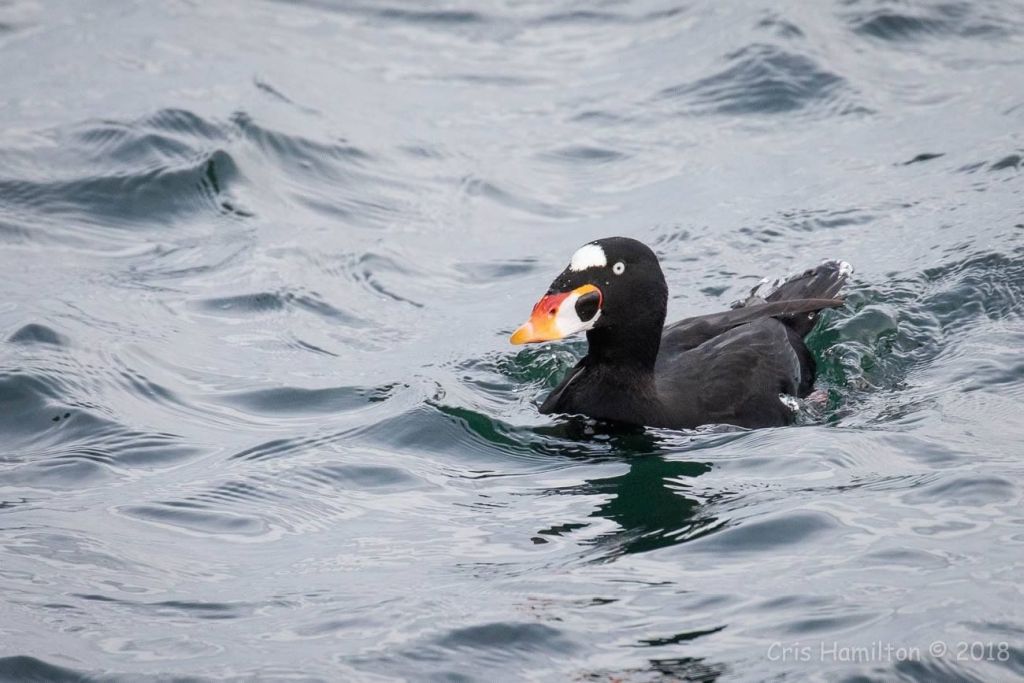Last summer a University of Delaware study found out what diving ducks can hear underwater. Why is this important? If we know what ducks can hear, we can save their lives.
Long-tailed ducks, common eiders and surf scoters eat crustaceans and mollusks that they pull from the ocean floor. Their populations are in steep decline, in part because hundreds of thousands of them die as bycatch in gillnets.
The diagram below shows a gillnet used for cod fishing in Newfoundland. Though no one fishes for cod anymore, gillnets are still used for other fish where ducks are diving.


Federal fishing laws solved the bycatch problem for dolphins and whales by requiring pingers to warn the mammals away. Fish can’t hear the pingers but dolphins can. Is there a sound that will work for ducks?
University of Delaware grad student Kate McGrew tested long-tailed ducks, common eiders and surf scoters and found out they can hear 1-3 kHz underwater.

Fish cannot hear above 2 kHz so there’s hope for the ducks.
This New York Times ScienceTake video shows how McGew trained the ducks.
Read more in this University of Delaware article: What do ducks hear?
(photos by Steve Gosser and Cris Hamilton)



Interesting. Not only do they need to be inaudible to fish and audible to ducks, but the sounds have to repel the ducks, too. I didn’t catch how they did that with dolphins. Maybe the warning sounds are very loud or transmitted in annoying patterns.